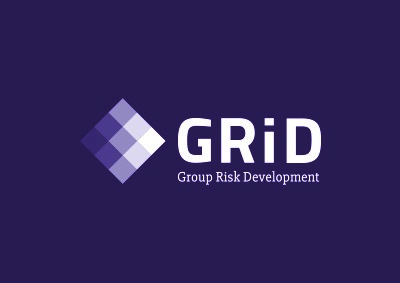Press release 7 November 2019
Research* revealed today from GRiD shows that only a quarter (25%) of employers make a point of issuing regular communication on their benefits package. 22% do so just once a year. Others use specific events as a prompt: for instance, 36% will communicate benefits when there’s a change in the terms and conditions, such as if pension contributions or terms of cover are set to change. 29% will do so at performance reviews.
GRiD, the industry body for the group risk protection sector (employer-sponsored life assurance, income protection and critical illness) warns that this isn’t enough.
Katharine Moxham, spokesperson for GRiD said: ‘It’s understandable that employers use key events to communicate their benefits, but what an employer sees as a key event may not coincide with what an employee sees as a key event.’
Illness, disability, injury, death, bereavement, are all largely unpredictable in nature so can affect an employee at any time. The support that can be offered by employee benefits, such as group risk, can be necessary any day of the year. It’s all too easy for an employee to forget about any available support if it wasn’t relevant at the time they were told about it. It’s crucial that benefits are communicated regularly so that when they are needed, they’re front of mind.
Likewise, some benefits are more relevant to people depending on their life stage. Some benefits will resonate more depending on an employee’s financial situation or whether they have dependants. Employees whose eyes glazed over at the mention of retirement planning, health and wellbeing benefits or life assurance may suddenly be much more attentive when it’s relevant to their stage of life.
Further, some benefits can be utilised daily, at no extra cost, so it makes sense to communicate them regularly and encourage their use. For example, many group risk benefits come with an employee assistance programme, early intervention support for health and wellbeing, access to counselling, and legal support for issues such as neighbour disputes and parking fines. Frequent communication of such benefits encourages utilisation and gives more value to both employer and employee.
Moxham continued, ‘Few employee benefits can be utilised every day, even if a claim is never made, at no extra cost to the employer or employee. To capture employees’ attention at a time when they can make use of them, it’s important that they’re communicated regularly. Once a few employees get value they soon start telling colleagues, engagement then snowballs, as does the value.’
- Ends –
*Research undertaken by Opinium on behalf of GRiD amongst 500 HR Decision makers between 4-18 March 2019.
For further information please contact:
Sharon Mason
SMUK Marketing and PR
smason@smuk.org.uk
Mob: 07747 611773
Land: 01252 843350
Katharine Moxham
Spokesperson for GRiD
Katharine.moxham@grouprisk.org.uk
Mob: 07887 512508
Notes for editors
About GRiD
Group Risk Development (GRiD) is the industry body for the group risk protection sector, promoting the value to UK businesses of providing financial protection for their staff, enhancing their wellbeing and improving employee engagement. Our membership includes insurers, reinsurers and intermediaries who have a collective wealth of experience built over years of operating in the group risk protection market. Under the chairmanship of Steve Bridger (MD Group Protection, Corporate, Aviva UK Insurance) GRiD aims to promote group risk through a collective voice to Government, policymakers, stakeholders and employers.
GRiD works with government departments and regulators involved in legislation and regulation affecting group risk benefits, and with other organisations involved in the benefits and financial protection arenas. GRiD also seeks to enhance the industry’s standing by encouraging best practice and by participating in industry-wide initiatives such as the professional qualification in group risk managed jointly with the Chartered Insurance Institute.
GRiD’s media activity aims to generate a wider awareness and understanding of group risk products and their benefits for employers and employees.
GRiD’s dedicated spokesperson, Katharine Moxham, provides expert media comment on a full range of group risk issues.
Follow Katharine Moxham on Twitter @KMoxham


